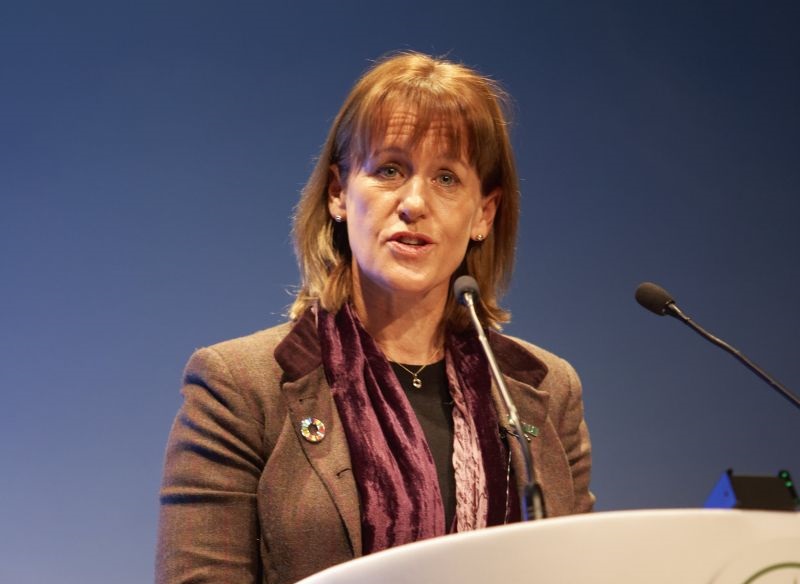COP27: Energy and food security must be addressed, farm leaders say

The government must address energy and food security concerns at COP27 to aid climate change goals, the presidents of the UK's farming unions have said.
Agriculture could boost its production of green energy to ensure farmers continue to produce food in the face of global energy shocks, according to the farm leaders.
The call comes ahead of Agriculture Day at COP27, which takes place on Saturday (12 November).
The unions said the right investment from government to improve infrastructure frameworks and simplify planning regulations would enable greater production of on-farm energy through solar and wind turbines, and the ability to store this energy in battery packs.
In turn this would reduce energy use from fossil fuels, cut on-farm costs and build businesses resilience in the face of global volatility, ultimately supporting sustainable food production.
Farmers across the world are on the frontline of climate change with drought, fires and flooding threatening global food security, and are also facing unprecedented inflationary pressures across the world.
During talks at COP27, the four UK farming unions are showing how farmers are part of the solution to the climate crisis, and that the government must provide more support and incentives for this to be maximised.
NFU President Minette Batters said the issues of food security and energy security had 'never been more important'.
"Investing in our sector to increase green energy production will not only build resilience in farm businesses and reduce reliance on fossil fuels, but will help farmers produce climate-friendly food for people at home and abroad.
“Agriculture’s role in producing renewable energy and sustainable food, alongside other land-based solutions such as carbon capture, must be recognised by decision-makers at COP27 and beyond.
"This is about giving UK farming the tools to unlock its net zero potential, which is in everyone’s interests," she said.
NFU Scotland President Martin Kennedy added that future policy should include an increase in the investment in energy infrastructure.
And more help is needed to produce sustainable meat and dairy more efficiently, he said, as well as production of green fertilisers, water storage, new crop varieties and methods of maintaining crop yield.
It is expected that by 2050, the world’s population will have increased by one-third, with the greatest increase occurring in developing countries.
The FAO estimates that, if current income and consumption growth trends continue unabated, agricultural production will have to grow by 60% to satisfy the expected increased demands for food and feed. This will be made increasingly difficult by climate change.
Ulster Farmers’ Union (UFU) President David Brown said more support was needed to enable farming as a whole to make this transition towards more sustainable food production.
"It is the only way to ensure we are protecting the planet and have a global availability of food for consumers," he said.








